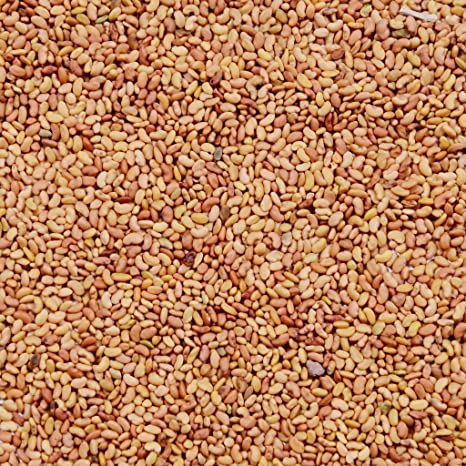Ayurvedic products and herbs
Top 5 Health Benefits of Alfalfa seeds
Alfalfa, also known as lucerne or Medicago sativa, is a plant that has been used as animal feed for centuries. It has long been regarded for its higher vitamin, mineral, and protein content than other feed sources. Alfalfa belongs to the legume family, although it’s also classified as a herb. It has originated in South and Central Asia, although it has been grown for millennia all over the world. It has a long history of usage as a human therapeutic plant in addition to being used as feed. Alfalfa is beneficial in many forms. Here are some of the health benefits of Alfalfa.
Contents
Health Benefits of Alfalfa:
Alfalfa is most commonly consumed as a herbal supplement or as alfalfa sprouts. There is no conventional nutrition information available because the leaves or seeds are supplied as herbal supplements rather than meals. They are a good source of vitamin K and contain a variety of other minerals, including vitamin C, copper, manganese, and folate. Alfalfa sprouts are rich in the same nutrients and have a low calorie count. A cup also contains 1 gramme of protein and 1 gramme of fiber-derived carbohydrates. Saponins, coumarins, flavonoids, phytosterols, phytoestrogens, and alkaloids are among the bioactive plant chemicals found in alfalfa.
Read More: Health benefits of Brahmi
Top 5 Health Benefits of Alfalfa
There is a vast range of traditional therapeutic applications for alfalfa. Lowering blood pressure, acting as a diuretic, alleviating arthritis, and removing kidney stones are just a few of the benefits.
Reduces cholesterol:
The capacity of alfalfa to decrease cholesterol is its most well-researched health benefit to date. It has been demonstrated in several animal experiments to lower total cholesterol, LDL (bad) cholesterol, and triglyceride levels while boosting HDL (good) cholesterol, potentially lowering the risk of heart disease. The high amount of saponins in alfalfa is responsible for its cholesterol-lowering properties. Saponins are the plant chemicals that decrease cholesterol levels.
They achieve this by reducing cholesterol absorption in the intestines and boosting excretion of chemicals that are utilised to make new cholesterol.
Read More: 5 Amazing Health Benefits of Manjistha
Enhances metabolism:
Alfalfa has long been used as an antidiabetic, or blood sugar-lowering medication. Alfalfa promotes cardiometabolic health by lowering blood fat and blood sugar levels, according to many studies.
Alleviates Menopause Symptoms:
Alfalfa contains phytoestrogens, which are plant chemicals that are chemically similar to the hormone oestrogen. This implies they can have some of the same physiological effects as oestrogen.
Phytoestrogens are controversial, although they have a number of advantages, including alleviating menopausal symptoms caused by low oestrogen levels. It also helps with hot flashes.
Antioxidant Properties:
Alfalfa has a long history of usage in Ayurvedic medicine to treat inflammatory and oxidative damage-related disorders.
Indeed, alfalfa has potent antioxidant effects, as evidenced by studies, showing that it protects against oxidative stress generated by free radicals. Alfalfa, in particular, has the capacity to prevent free radical-induced cell death and DNA damage. It accomplishes this by decreasing free radical generation while also boosting the body’s capacity to combat them.
Prevents Hair Loss:
Vitamins A, C, E, and K are abundant in alfalfa. Alfalfa is a “superfood” because it contains all of the vitamins your body requires to create new cells and strengthen your immune system. Its thick roots help it to absorb a lot of nutrients as it grows. You should ensure that your body gets everything it needs to develop healthy cells for your hair and body by taking alfalfa supplements or including alfalfa sprouts into your diet.
Like other herbs, alfalfa has a lot of antioxidants. Antioxidants counteract environmental elements that cause accelerated aging of your hair and skin cells. Alfalfa for hair helps to reduce oxidative stress on hair cells and restore a healthy, young appearance.
Read more: 4 Amazing Health Benefits of Annatto
Conclusion:
Alfalfa is extremely nutrient-dense. It has a rare blend of vitamins, antioxidants, and immune-boosting characteristics. It’s also popular since it’s high in antioxidants and minerals such as vitamin K, copper, folate, and magnesium. Alfalfa also has a very low calorie count. Alfalfa is available as a dried plant, a tea, and pills. It’s available at practically every pharmacy and supermarket.
For more details on herbs & its remedies realted educational videos subscribe to our channels
https://www.youtube.com/@trustherb
https://www.instagram.com/trustherb.india/


